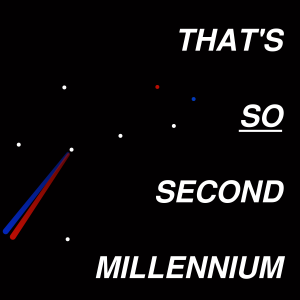
- Podcast Features
-
Monetization
-
Ads Marketplace
Join Ads Marketplace to earn through podcast sponsorships.
-
PodAds
Manage your ads with dynamic ad insertion capability.
-
Apple Podcasts Subscriptions Integration
Monetize with Apple Podcasts Subscriptions via Podbean.
-
Live Streaming
Earn rewards and recurring income from Fan Club membership.
-
Ads Marketplace
- Podbean App
-
Help and Support
-
Help Center
Get the answers and support you need.
-
Podbean Academy
Resources and guides to launch, grow, and monetize podcast.
-
Podbean Blog
Stay updated with the latest podcasting tips and trends.
-
What’s New
Check out our newest and recently released features!
-
Podcasting Smarter
Podcast interviews, best practices, and helpful tips.
-
Help Center
-
Popular Topics
-
How to Start a Podcast
The step-by-step guide to start your own podcast.
-
How to Start a Live Podcast
Create the best live podcast and engage your audience.
-
How to Monetize a Podcast
Tips on making the decision to monetize your podcast.
-
How to Promote Your Podcast
The best ways to get more eyes and ears on your podcast.
-
Podcast Advertising 101
Everything you need to know about podcast advertising.
-
Mobile Podcast Recording Guide
The ultimate guide to recording a podcast on your phone.
-
How to Use Group Recording
Steps to set up and use group recording in the Podbean app.
-
How to Start a Podcast
-
Podcasting
- Podcast Features
-
Monetization
-
Ads Marketplace
Join Ads Marketplace to earn through podcast sponsorships.
-
PodAds
Manage your ads with dynamic ad insertion capability.
-
Apple Podcasts Subscriptions Integration
Monetize with Apple Podcasts Subscriptions via Podbean.
-
Live Streaming
Earn rewards and recurring income from Fan Club membership.
-
Ads Marketplace
- Podbean App
- Advertisers
- Enterprise
- Pricing
-
Resources
-
Help and Support
-
Help Center
Get the answers and support you need.
-
Podbean Academy
Resources and guides to launch, grow, and monetize podcast.
-
Podbean Blog
Stay updated with the latest podcasting tips and trends.
-
What’s New
Check out our newest and recently released features!
-
Podcasting Smarter
Podcast interviews, best practices, and helpful tips.
-
Help Center
-
Popular Topics
-
How to Start a Podcast
The step-by-step guide to start your own podcast.
-
How to Start a Live Podcast
Create the best live podcast and engage your audience.
-
How to Monetize a Podcast
Tips on making the decision to monetize your podcast.
-
How to Promote Your Podcast
The best ways to get more eyes and ears on your podcast.
-
Podcast Advertising 101
Everything you need to know about podcast advertising.
-
Mobile Podcast Recording Guide
The ultimate guide to recording a podcast on your phone.
-
How to Use Group Recording
Steps to set up and use group recording in the Podbean app.
-
How to Start a Podcast
-
Help and Support
- Discover

Bill’s introductory question: Would there be a quick curriculum in basic philosophical principles, including the philosophy of science, that could discourage people from assuming that science and religion are at incompatibly opposite ends of the spectrum of “how to think about things”?
We discuss the difficulty of canning a “curriculum” or “program” to address anything, let alone a problem as nuanced as this is, before plunging ahead and taking our chances.
Paul argues that there are actually significant parallels between the religious, and specifically Christian, concepts of “mystery” and “dogma” and inescapable aspects of thinking about and doing science.
A mystery is an issue within a system of religious doctrines where it is confidently pronounced that human debate and philosophizing will never exhaust the issue and solve it completely. That is very different than saying a mystery is something to encounter and then stop thinking. It’s the opposite. It’s a promise that continued thinking and contemplation will continue, world without end.
Even the concept of dogma has analogues, especially if you broaden your horizon of scientific thinking enough to take in the observational or descriptive sciences like geology, zoology, and paleontology. In these sciences, we try to understand phenomena that we don’t have the power to replicate. We can’t run the experiment “Venus” over again, changing the parameters until we understand for certain why it came out with this thick carbon dioxide atmosphere and high surface temperature as opposed to being more like Earth or Mars or anything else. We can do experiments that help us interpret the observations we make, but we have to accept the testimony of the geologic, paleontologic, or astronomic record as it has been presented to us.
Christian dogmas boil down to testimony. We can’t run the experiments Mary or Jesus of Nazareth over again. A Catholic Christian accepts testimony that has been handed down, and if he is a thinker of any kind, he works that into his worldview.
Again, key points in this discussion we owe to Stephen Barr’s Modern Physics and Ancient Faith.
Paul’s profile on Goodreads: https://www.goodreads.com/user/show/4658045-paul.
More Episodes
 2022-11-21
2022-11-21
 2022-08-30
2022-08-30
 2022-06-06
2022-06-06
 2022-02-28
2022-02-28
Create your
podcast in
minutes
- Full-featured podcast site
- Unlimited storage and bandwidth
- Comprehensive podcast stats
- Distribute to Apple Podcasts, Spotify, and more
- Make money with your podcast
It is Free
- Privacy Policy
- Cookie Policy
- Terms of Use
- Consent Preferences
- Copyright © 2015-2025 Podbean.com




